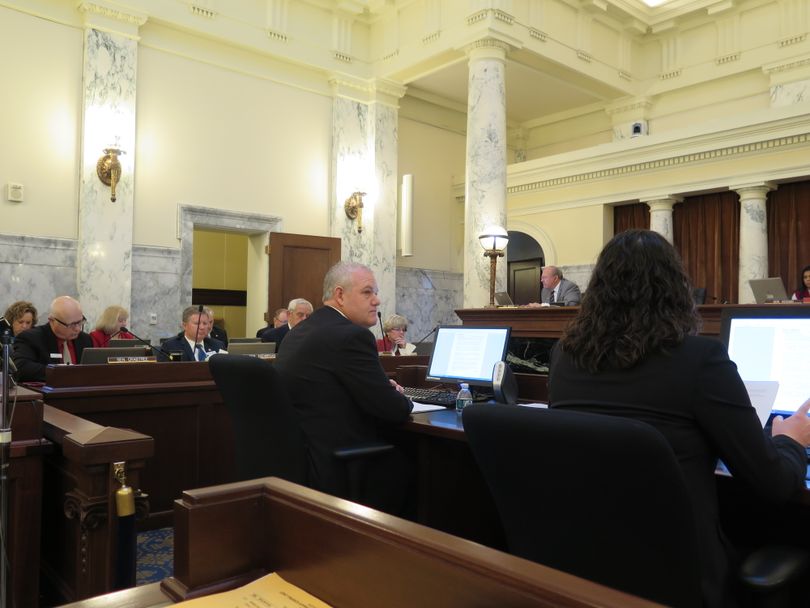JFAC gets a look at five-year, $102M project to modernize the state’s accounting, payroll, procurement systems

Idaho State Controller Brandon Woolf has been leading up to this for several years, and today he presented his budget request to lawmakers to modernize the state’s business systems – including the statewide accounting, payroll, and procurement systems and more. It’s a $102 million project to be implemented over five years; both Woolf and Gov. Butch Otter are proposing a funding mechanism that involves redirecting money from the state’s indirect cost recovery fund to the project, at the rate of $18 million to $22 million a year. That fund, which agencies pay into for various central services they receive from the state, normally is transferred to the general fund at the end of the year, so it is roughly a $20 million a year fiscal impact.
Woolf said he’ll be proposing legislation to create the fund to receive the transfers, in an effort to ensure the project is funded both reliably and transparently, and with good governance from the Legislature, the governor, and his office.
“I have personally met with 81 agency heads on this subject, and they all support this effort to modernize,” he said.
Lawmakers in 2015 appropriated money to begin the project with a system modernization study, which was completed by an independent consulting firm that also has done similar work for 18 other states. That, Woolf said, “provided a roadmap for modernization,” and how to give Idaho “a modern enterprise resource planning system,” that will “consolidate duplicative systems, standardize processes for greater efficiency and produce greater transparency.” That’s where the $102 million five-year estimate came from.
The state controller’s office also issued a Request for Information that drew submissions from six vendors, and further “helped educate us,” Woolf told the Joint Finance-Appropriations Committee. “This year, we are analyzing the current business processes across state agencies. ... This is a vital step to understanding our current environment, identifying where we can create efficiencies and further address our statewide needs.”
He said, “The risk of the state missing a payroll or not being able to pay the bills on time increases the longer we stay status quo.” Idaho, he said, currently relies on “aging infrastructure we first installed three decades ago.”

“We have been working with you over the years to define and scope the proper path forward to a proper accounting and payroll system,” Woolf told the lawmakers. “We are one of the last states” to modernize those systems. “Because of this, we have been able to learn from other systems’ successes and failures.”
Woolf said the current, aging system is “nearly impossible to maintain,” and said, “The driver of the need to modernize is the increasing risk of our aging systems failing.”
“I take seriously my constitutional duty to mangage the fiscal concerns of the state of Idaho,” he said. “I cannot accept the increasing risk of our systems failing. … We can and will realize greater value for Idaho by modernizing these systems. This is a large and challenging project, but the risk of doing nothing is too great to ignore.”
JFAC members had a series of questions about the proposal, but were largely supportive.
Co-Chair Sen. Shawn Keough, R-Sandpoint, said she appreciated the presentation, calling it “a very important system, very fundamental to the way our state government works, and a needed investment.”
Sen. Carl Crabtree, R-Grangeville, complimented Woolf on an “excellent presentation,” and said, “I appreciate the 30-year perspective on the last system.” He asked how long the proposed new system might serve the state.
“The technology changes,” Woolf said. The current mainframe system is running on 30-year-old code, he said. But a properly designed new system “could last for as long as needed or is necessary. That would be our desire, so we can string those pennies into copper wire and make it last as long as we can.”
After the presentation, Woolf said he was "very pleased" with the committee's reception of the project. "I think they're very open and willing to work with us to be able to find the solution," he said.
